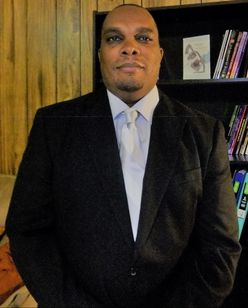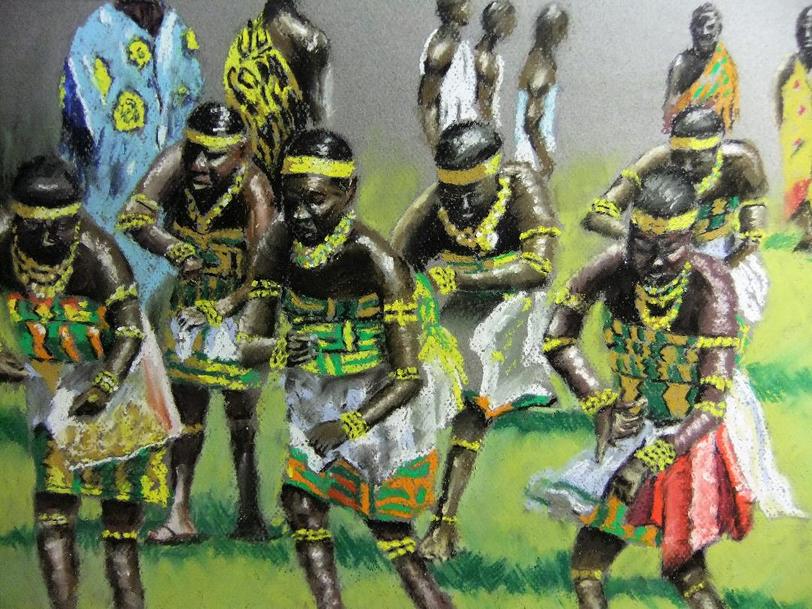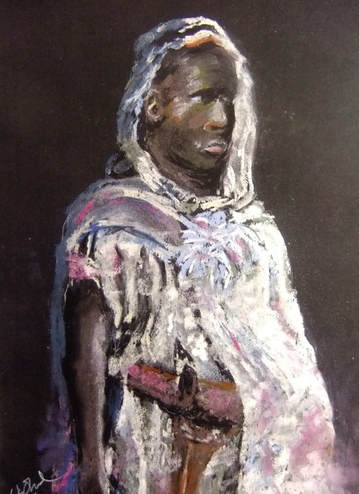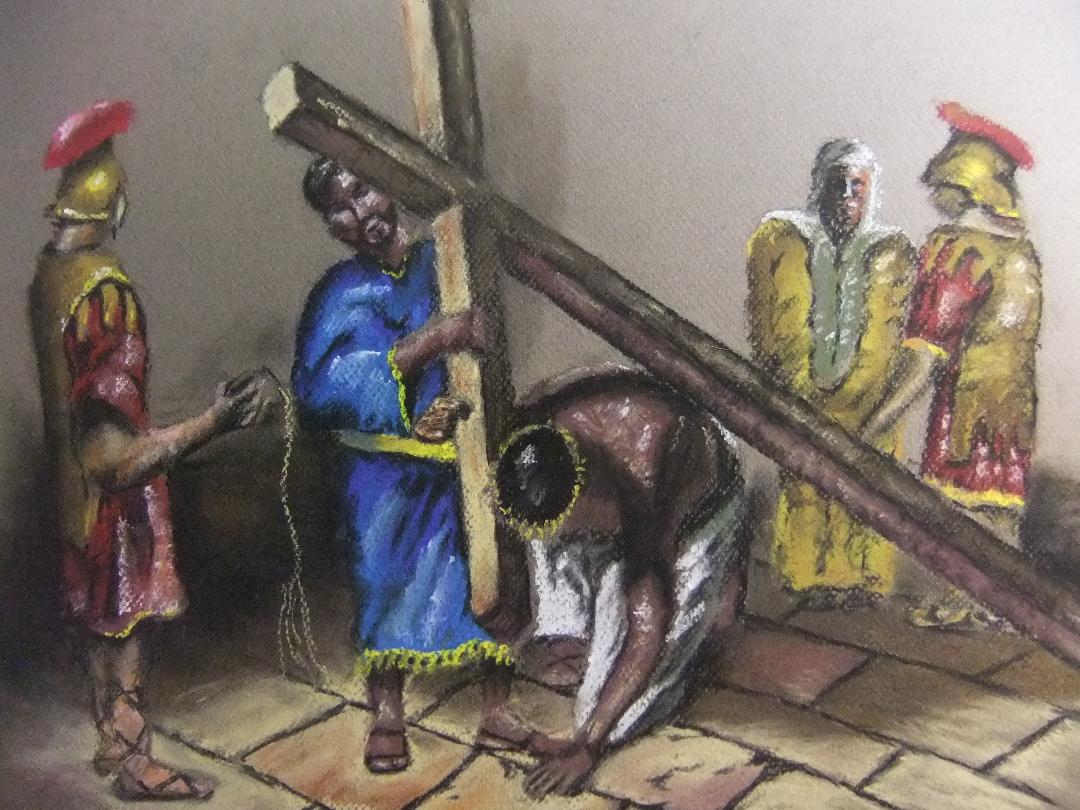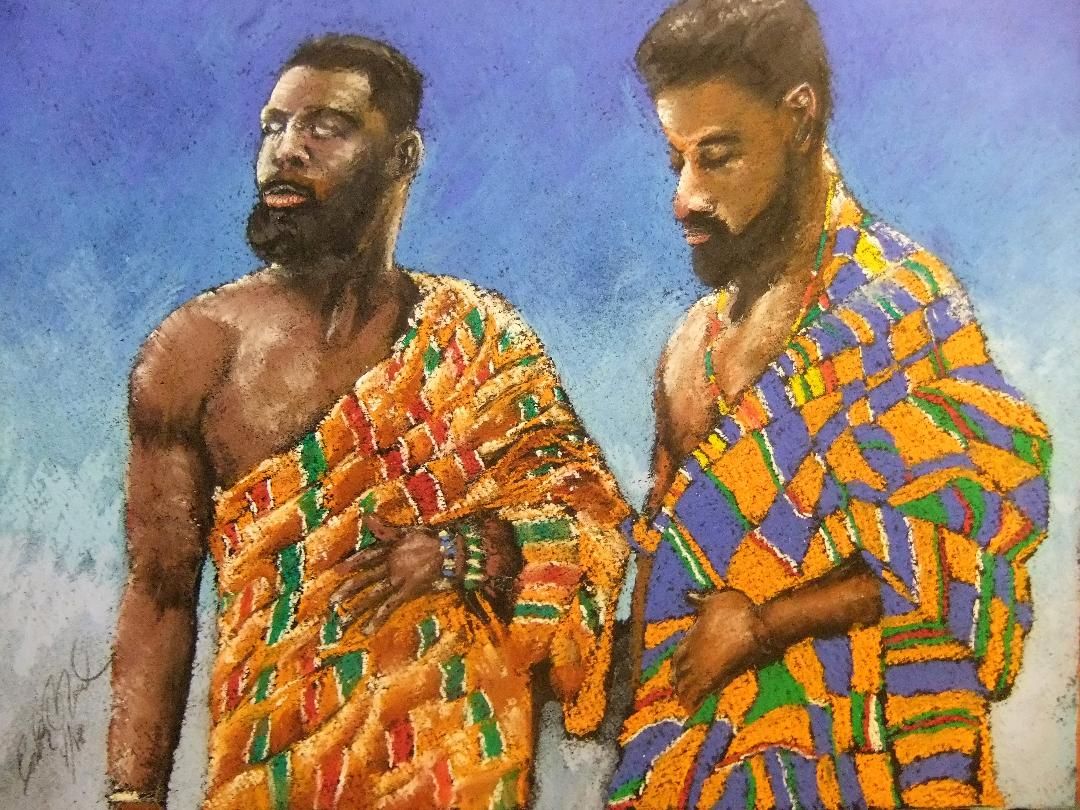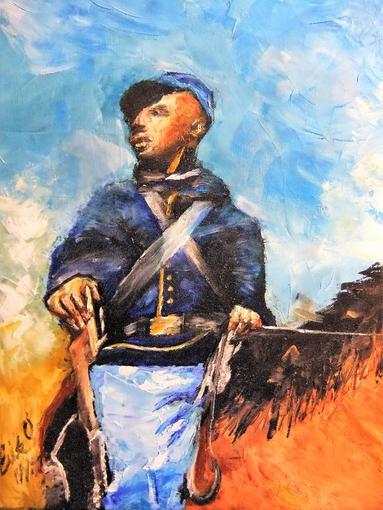Erick O'NealErik O’Neal is an outstanding Cultural Heritage Artist and serves as the Director for the Pan African Cultural Heritage Institute’s Art & Entertainment Program. He took his first formal lesson at the Art Institute of Chicago. He completed his study of art at Southern University, earning a Bachelor of Arts Degree. Erik began his professional art career at the Art Libraries Society of North America (ARLIS). He is a member of the Louisiana Art and Artists’ Guild and the Art Council of New Orleans. Most noteworthy, Erik was a participant in Arts Council of New Orleans “Artist as Entrepreneurs” 2012 work shops. The knowledge gained from his New Orleans arts experience, Erik brought to his position as Director and Educator for the Art & Entertainment Network and will share it with Cultural Heritage Community artists. |
- Erik primarily works with pastels and oils. He describes his work as “Impressionistic Realism". He states: "My goal is to bring a sense of intensity to my work and invoke passion within the viewer. I want to recreate the moment”. Erik has exhibited his work across the country. He has twice been selected to participate in the Great Gulf Coast Arts Festival (2009, 2012). Erik was discovered by the founders of the Pan African Cultural Heritage Institute, when he was the featured artist for the Gumbo Gallery in Pensacola, Florida for the month of June 2013.
O’Neal has since, proven himself to truly be a gifted artist and historian and adept at teaching and conducting seminars and art events. Eric has receives excellent review for his work on behalf of the Institute. He is routinely heard saying: “I’ve been creating art for as long as I can remember. I cannot imagine not doing it. Wherever I go, whomever I meet; the experience could be an inspiration for my next painting. Art is in all of us, it’s all around us.” And no one can capture the Pan African culture and history, and teach it, like Erik!
Other aspects of Erik’s career:- Started his Heritage Art journey with a promise he made to his Mom in 1999 to do genealogy research on the family. From that project, the idea to paint his family history was born. That idea expanded from researching and painting his family history, to researching and painting his entire race's cultural history and heritage.
- Experienced Elementary arts teacher.
- Expert Historian and Genealogist
- Over 17 years of library management and program experience
Erik is gifted in all aspects of the arts community and has excelled in many mediums. The Institute is honored to have Erik, as the Director of the Pan African Cultural Heritage Institute’s Arts Program.
The Dawn of the Mali Civilization
*The Mali civilization was established in the thirteenth century around 1240 A.D. It came about after the breakup of the Ghanaian Empire which preceded it. The word Mali is derived from a Mandingo grammatical root meaning free. Many people who were subject to Ghana proclaimed their independence after the Ghanaian empire started to crumble. The most celebrated or notable people were the Mandingos who established a new empire in the middle of the thirteenth century.
*The Ghanaian empire which preceded the Mali empire started off as a great Hebrew Empire with great Hebrew kings. Towards the end of it’s reign it was overrun by Muslim invaders and they eventually converted to Islam. The Mali Empire was also Islamic. But these people, along with the people who preceded them, were all Hebrew Israelites.
During the time of Christ he warned the Judeans that when you see Jerusalem compassed with armies, then you know that the desolation thereof is near. #Then let those in Judea flee to the mountains and let them which are in the midst of it depart out, and let not them that are in the countries enter thereinto. (Luke 21:20-21)
Those who heeded Christ’s warning fled into Africa to escape the Romans. The had to hide deep into Africa because the Romans controlled Egypt and present day Libya as well. Israelites often hid among Egyptians and Ethiopians to escape persecution (See the book Exodus, Moses and the Gospels, Christ being taken to Egypt).They eventually established kingdoms of their own in Africa.
*Information obtained from “Babylon to Timbuktu” written by Ruldolph R. Windsor.
#Taken from the King James Bible
